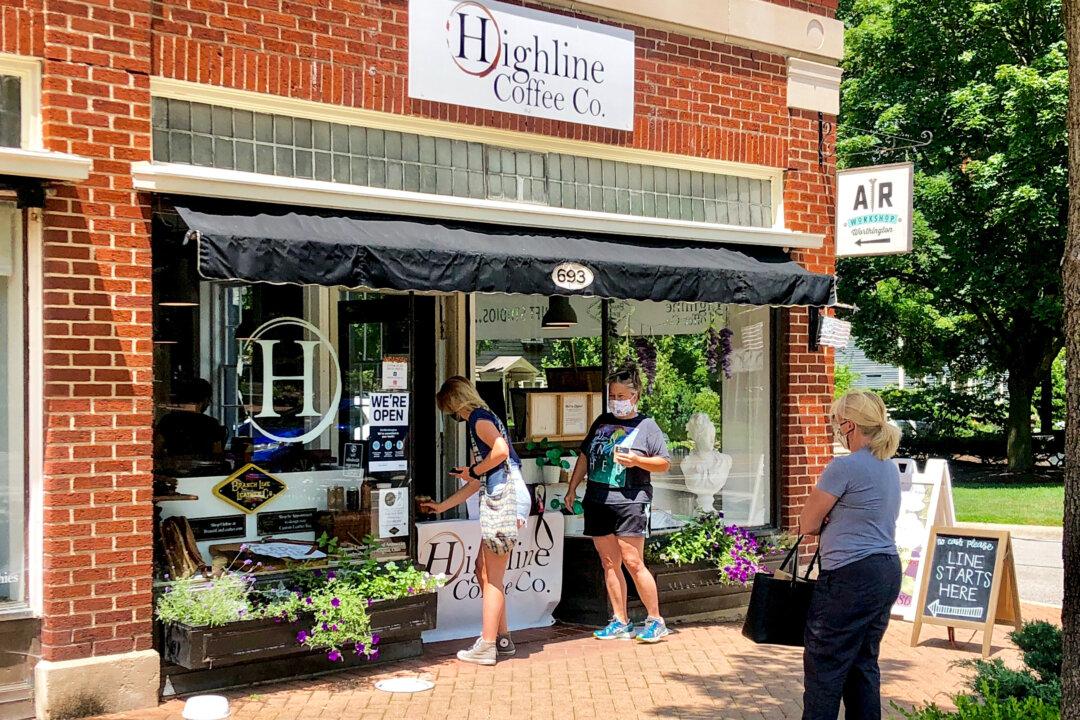What began as a two-week closure for many small businesses in March has turned into permanent shutter for some, while others are barely squeaking by with no end in sight.
Coffee shop owner Christie Bruffy closed her doors for a weeklong renovation on March 15—the first week of forced closures for bars and restaurants in Ohio due to the pandemic.





